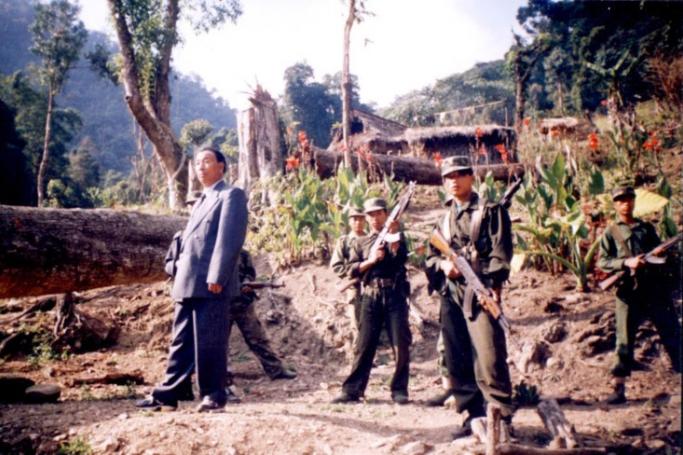The Indian government finally banned the National Socialist Council of Nagaland (Khaplang) for five years on Wednesday.
The group is headed by Myanmar Naga rebel leader S SKhaplang and has been responsible for attacks on Indian security forces in the country's troubled Northeast.
The decision to declare the NSCN (K) an unlawful organisation was taken in a cabinet meeting a top aide of National Security Advisor Ajit Doval told Mizzima over the phone.
The organisation will be banned under the Unlawful Activities (Prevention) Act, 1967.
“In recent times, a lot of explosions and ambushes have been carried out by this group. The Indian government, after detailed consideration, has decided to declare NSCN(K) an unlawful organisation for five years,” Doval's aide said, but was not willing to be named because he did not have authorisation to brief the media.
S.S. Khaplang heads the NSCN (Khaplang) faction while Niki Sumi, a resident of Zhunehboto in Nagaland, is in charge of the armed wing of the group.
In 1988, the NSCN split into two factions -- the NSCN(K) led by Khaplang and NSCN(IM) led jointly by Isak Chishi Swu and Thuingaleng Muivah.
India signed a 'framework agreement' with the NSCN (Isak-Muivah faction) on 3 August this year, but the terms of the agreement have not yet been disclosed.
Sensing that his group would not be included in any agreement, Khaplang reneged on the ceasefire he had signed with India in 2000.
In February this year his fighters launched a series of attacks on Indian army and para-military troops. Nearly 30 of them were killed in these attacks -- 18 in one ambush alone.
The Indian Home Ministry had planned to ban the Khaplang group immediately but Naga civil society groups suggested bringing the Myanmar based rebel leader to the table to get him to agree to the 3 August agreement.
But, when Khaplang refused to meet the Naga civil society delegation, Delhi's attitude hardened and it asked Myanmar to hand over Khaplang and three of his top lieutenants to stand trial in India for killing the soldiers.
You are viewing the old site.
Please update your bookmark to https://eng.mizzima.com.
Mizzima Weekly Magazine Issue...
14 December 2023
New UK Burma sanctions welcome...
13 December 2023
Spring Revolution Daily News f...
13 December 2023
Spring Revolution Daily News f...
12 December 2023
Spring Revolution Daily News f...
11 December 2023
Spring Revolution Daily News f...
08 December 2023
Spring Revolution Daily News f...
07 December 2023
Diaspora journalists increasin...
07 December 2023
Photo Essay












